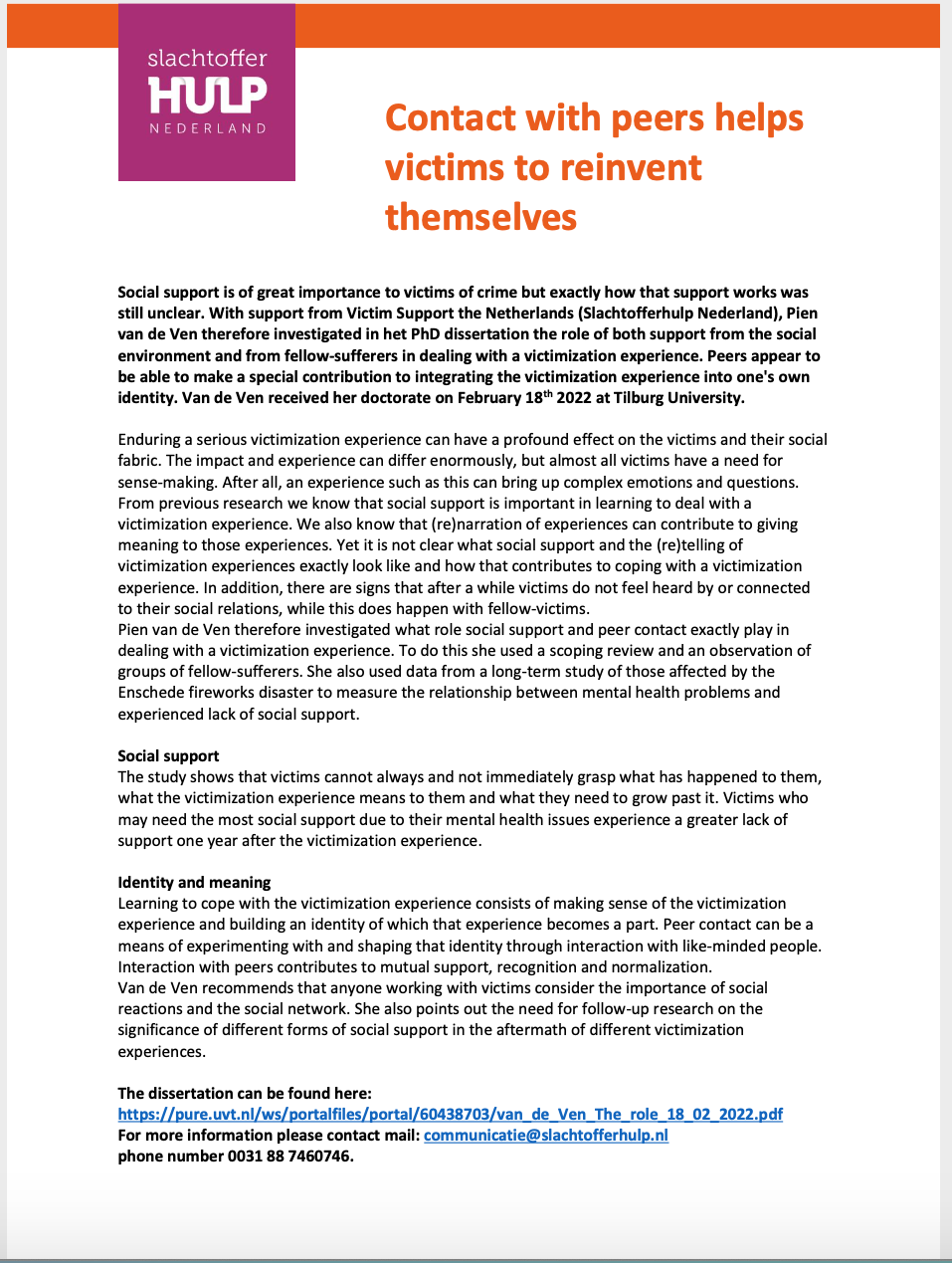Social support is of great importance to victims of crime but exactly how that support works was still unclear. With support from Victim Support the Netherlands (Slachtofferhulp Nederland), Pien van de Ven therefore investigated in het PhD dissertation the role of both support from the social environment and from fellow-sufferers in dealing with a victimization experience. Peers appear to be able to make a special contribution to integrating the victimization experience into one’s own identity. Van de Ven received her doctorate on February 18th 2022 at Tilburg University.
 Enduring a serious victimization experience can have a profound effect on the victims and their social fabric. The impact and experience can differ enormously, but almost all victims have a need for sense-making. After all, an experience such as this can bring up complex emotions and questions. From previous research we know that social support is important in learning to deal with a victimization experience. We also know that (re)narration of experiences can contribute to giving meaning to those experiences. Yet it is not clear what social support and the (re)telling of victimization experiences exactly look like and how that contributes to coping with a victimization experience. In addition, there are signs that after a while victims do not feel heard by or connected to their social relations, while this does happen with fellow-victims.
Enduring a serious victimization experience can have a profound effect on the victims and their social fabric. The impact and experience can differ enormously, but almost all victims have a need for sense-making. After all, an experience such as this can bring up complex emotions and questions. From previous research we know that social support is important in learning to deal with a victimization experience. We also know that (re)narration of experiences can contribute to giving meaning to those experiences. Yet it is not clear what social support and the (re)telling of victimization experiences exactly look like and how that contributes to coping with a victimization experience. In addition, there are signs that after a while victims do not feel heard by or connected to their social relations, while this does happen with fellow-victims.
Pien van de Ven therefore investigated what role social support and peer contact exactly play in dealing with a victimization experience. To do this she used a scoping review and an observation of groups of fellow-sufferers. She also used data from a long-term study of those affected by the Enschede fireworks disaster to measure the relationship between mental health problems and experienced lack of social support.
Social support
The study shows that victims cannot always and not immediately grasp what has happened to them, what the victimization experience means to them and what they need to grow past it. Victims who may need the most social support due to their mental health issues experience a greater lack of support one year after the victimization experience.
Identity and meaning
Learning to cope with the victimization experience consists of making sense of the victimization experience and building an identity of which that experience becomes a part. Peer contact can be a means of experimenting with and shaping that identity through interaction with like-minded people. Interaction with peers contributes to mutual support, recognition and normalization.
Van de Ven recommends that anyone working with victims consider the importance of social reactions and the social network. She also points out the need for follow-up research on the significance of different forms of social support in the aftermath of different victimization experiences.
The dissertation can be found here.
For more information, please, contact mail: communicatie@slachtofferhulp.nl ,
phone number 0031 88 7460746.

